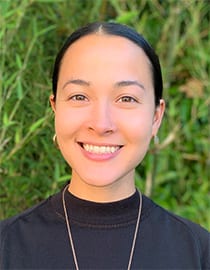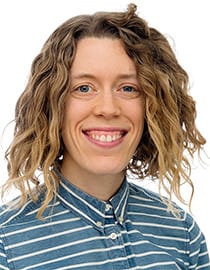By Andrew Cohen
Berkeley Law’s clinical program is enjoying another momentum jolt with the recent addition of three new hires. They will enable the program—ranked seventh among U.S. law schools this year, its highest ranking yet—to continue its excellence in student training and community outreach.

Mridula Raman, who joins the Death Penalty Clinic as a clinical supervising attorney, spent the past five years at the Federal Public Defender’s Office in Phoenix representing death-sentenced prisoners in federal habeas proceedings. A 2012 Yale Law School graduate, she describes working with law students new to the field as a gratifying part of her career.
“I’m so excited to be able to continue representing people facing the highest of stakes, while also helping to give students hands-on experience in this challenging but deeply rewarding area of the law,” Raman says. “I’m particularly thrilled to do so at the Death Penalty Clinic—which is led by rock stars of the capital defense community and has a reputation for excellence in capital representation, and which consistently attracts some of the most brilliant and motivated students in the country.”
At the Federal Public Defender’s Office, Raman gained a wide swath of experience. Her work involved writing habeas petitions and related motions, drafting appellate briefs, investigating crimes and clients’ histories, conducting interviews, engaging in legal research, appearing in court, and addressing clients’ non-legal needs. She cultivated strong relationships with death-sentenced clients, “many of whom have never been listened to or taken seriously or cared about before,” she says.
Previously, Raman clerked for federal judges Neil Wake (District of Arizona) and Mary Murguia (U.S. Ninth Circuit Court of Appeals). Between earning her undergraduate degree at Harvard and enrolling at Yale Law, she spent a year on a traveling dance fellowship in India and two years as a business analyst for McKinsey and Company.
Raman eagerly anticipates working with students “who are excited to think outside the box about how we can best represent our clients. Likewise, I’m looking forward to serving as a mentor and sounding board for students as they figure out what they might want their careers to look like, whether those careers are in indigent defense or other fields.”
Back in the saddle
Devan Shea joins—or, more accurately, rejoins—the Policy Advocacy Clinic as a teaching fellow. She spent four semesters there as a student at UC Berkeley’s Goldman School of Public Policy, supporting efforts to end administrative fees in the adult criminal legal system in California and helping develop a national campaign to eliminate juvenile system fines and fees in jurisdictions across the country.

“It’s very gratifying to be part of a team that has accomplished so much in a relatively short amount of time,” Shea says. “Advocates now have examples of statewide reform that they can point to and say, we can make this happen in our state, too. More and more decision makers are recognizing the harm that funding their justice systems on fees is causing to communities.”
Shea also researched policy responses to early childhood trauma as a summer research fellow at the Oakland City Council. Before graduate school, she developed global partnerships, facilitated coalitions, and trained advocates to advance sexual and reproductive health and rights in U.S. foreign policy.
Having seen the clinic’s research drive the national conversation on harms caused by legal financial obligations—particularly for young people of color in the juvenile justice system and their families—Shea relishes returning in a new role. “I saw the clinic making a real policy impact, and that was inspiring,” she says. “I was excited about the idea of contributing to this momentum and seeing through some of the work I had started as a student.”
Pursuing environmental justice

New Environmental Law Clinic Fellow Heather Lewis arrives from Earthjustice’s California office, where she litigated cases to protect communities from fossil fuel infrastructure development and to preserve California’s endangered species and wild places. One of her cases, challenging the development of a coal export terminal in Oakland, is pending before the Ninth Circuit.
Before that, Lewis was a staff attorney at ChangeLab Solutions (a public health law and policy organization), and a legal fellow at Communities for a Better Environment. There, she litigated environmental justice cases and provided legal support for community campaigns in the Bay Area and Southern California. As a student at NYU School of Law, Lewis was editor-in-chief of the Environmental Law Journal and took part in two clinics, one focused on environmental law.
“They were incredible experiences for me,” she says. “Not only was it meaningful and rewarding to have an opportunity to contribute to work that I really cared about, but the practical litigation and advocacy skills I learned have repeatedly proven to be essential to my work as a litigator. I hope to have an opportunity to pay that forward at the Environmental Law Clinic.”
Aiming to advance the clinic’s environmental justice and public health docket, Lewis looks forward “to sharing both of those perspectives with our students with the goal of not only broadening their exposure to different substantive issues, but also expanding the scope of the advocacy toolkit that they can draw upon.”